Discover The Path To Learning Podcast
The Path To Learning Podcast

The Path To Learning Podcast
Author: John Pottenger
Subscribed: 11Played: 798Subscribe
Share
© Copyright 2020 Match Frame Creative
Description
A fresh perspective on education. What's working, what's broken, and how we can best advocate for children. A companion to the Garden of Children documentary series, this podcast explores a wider perspective on education in America. We shine a light on forces preventing a return to the play-based, STEM/design education we started with 150 years ago.
25 Episodes
Reverse
Can a 19th century children's toy inform modern dance? Lincoln Jones, co-founder/artistic director of the American Contemporary Ballet in Los Angeles (and host of The Outsiders podcast), describes how he uses Froebel® blocks to boost his understanding of design. www.pathtolearning.us www.patreon.com/pathtolearning/
Renowned Brazilian artist/photographer Vik Muniz discusses Froebel, creativity, and the Escola Vidigal school he established in Rio. Vik shares his experiences growing up in São Paulo and how creativity is not often nurtured in children.
What skills should our children learn to succeed in the 21st century? Industrial designer Ilana Ben-Ari shares how she approached the problem through design thinking and why she developed the Empathy Toy and Failure Toy for her company TwentyOneToys.com. For more information visit www.pathtolearning.us and to support this podcast visit: www.patreon.com/pathtolearning/.
Are we seeing the problem from all sides? We hear often from parents and teachers, and from nonprofit reformers. Today we discuss the view of education at an administrative level. Jonathan Tobar is Assistant Superintendent for Secondary Learning at Livingston Educational Service Agency. With nearly 20 years of experience in the classroom and district offices, his vantage point provides a unique perspective on the problems facing education today. To learn more about Michigan's statewide network: https://www.gomaisa.org/ Support us: www.patreon.com/pathtolearning/ or www.pathtolearning.us
As a result of the Pandemic, many parents find themselves playing the "Teacher" role in their homes in some form or another. Without being trained as teachers, how can we make the most of this moment with our children and foster wonder in their learning? In this episode Lynell Miller, a photographer based in Grand Rapids found herself searching for answers to these questions. Her inspirational story is one that we can all relate to, and be inspired by as we search for ways to foster child-centered learning at home. Follow Lynell's Instagram journey here: https://www.instagram.com/lizzie_photo/ To see photos mentioned in this podcast, visit our website at pathtolearning.us Support our podcast: patreon.com/pathtolearning/
Play is a powerful way to learn ... so why is it disappearing from children's lives? Our guest, Nancy Carlsson-Paige, professor emerita of early childhood education at Lesley University (where she trained teachers for 30+ years), shares her insights. As a vocal advocate for children's right to play (and co-founder of Defending the Early Years (http://dey.org), Nancy is a prolific author of many book/articles on media violence, conflict resolution, and peaceable classrooms/schools. Her most recent book is Taking Back Childhood: A Proven Roadmap for Raising Confident, Creative, Compassionate Kids. www.pathtolearning.us www.patreon.com/pathtolearning/
Is it possible to have a child-centered approach in any classroom? Julie Bennett describes how she's done this throughout her career and the importance of a child-centered approach for every educational endeavor. Julie Bennett, M.Ed has taught for over 30 years in both private and public schools, teaching a range of ages from early childhood to adult continuing ed. Introduced to Froebel's method in 2002, Julie recognized the practices she intuitively gravitated toward. She's a frequent presenter at Froebel USA events and lectures on Froebel methods to university education students. Follow us at http://pathtolearning.us Support us at: http://patreon.com/pathtolearning/
How can we stop shielding kids from nature and help them explore it safely? Nature-based educator/author/consultant Rachel Larimore, of Samara Early Learning, explains how to better manage beneficial risky play. As a founder of Chippewa Nature Center Preschool in Midland, Michigan, Rachel has years of experience working with parents, teachers and children in a nature-based setting. She’s also just released an online video course on risky play, complete with helpful forms and worksheets that schools can immediately put to use. Check out Rachel's books: "Establishing a Nature-Based Preschool" and "Preschool Beyond Walls: Blending Early Childhood Education and Nature-Based Learning." Follow us at http://pathtolearning.us Support us at: http://patreon.com/pathtolearning/
Why is the Reggio Approach So Popular? Jennifer Azzariti, an artist, studio teacher and atelierista, began her career at the Model Early Learning Center (MELC) in Washington, DC … a landmark school in the history of the Reggio Approach in the U.S. She’s worked closely with Amelia Gambetti and Lella Gandini, and is the founder of the DC Area Reggio Study Group.] Follow us at http://pathtolearning.us Support us at: http://patreon.com/pathtolearning/
Does anyone really know what Froebel intended his Kindergarten to be? How much of that survives today, who changed it ... and why? Helge Wasmuth, Associate Professor in the Department of Childhood Education at Mercy College, researched these questions and joins us to discuss. Check out Helge's Book: "Fröbel’s Pedagogy of Kindergarten and Play" https://amzn.to/30EtsSW Check us out at: http://pathtolearning.us Support us at: http://patreon.com/pathtolearning/
What are parents and teachers going to do about school this year? Many are talking about starting pods or micro schools. After decades in the Pittsburgh public schools, from the classroom to upper administration, Mara Linaberger of https://microschoolbuilders.com has experience to share. Mara is the author of two books: The Micro School Builder’s Handbook: https://amzn.to/2Die1Xj My Kid Hates School: https://amzn.to/312IT6j Follow us: http://pathtolearning.us Support us: http://patreon.com/pathtolearning/
What can we do to empower those working in early childhood to ensure all children get a quality education? Our guest today is Rhian Evans Allvin, CEO of NAEYC https://naeyc.org, the largest organization of early childhood professionals in the US. She has a new initiative to do just that. Power to the Profession was established as a national collaboration to define the early childhood education profession (birth through age 8) across states and settings, and establish a framework for career pathways knowledge and competencies, qualifications, standards, accountability, and compensation. Rhian Evans Allvin has been guiding the strategic direction of NAEYC and overseeing daily operations since 2013. Before joining NAEYC, Allvin was a guiding force in Arizona’s early childhood movement for more than 15 years, including serving as CEO of Arizona's "First Things First." Visit us at: http://www.pathtolearning.us Support us at: http://patreon.com/pathtolearning/
Powerful learning happens through creative hands-on activities. How can schools better promote learning beyond eyes and ears? Doug Stowe, an expert in both Sloyd and Froebel methods, shows us how. Doug, master woodworker, developed the Wisdom of the Hands program at Clear Spring School, a small independent school in Eureka Springs, AR. He's written over a dozen books on woodworking, including a Guide to Woodworking with Kids, and advocates for environmental stewardship. Check out his Wisdom of the Hands blog. Visit us at: http://www.pathtolearning.us Support us at: http://patreon.com/pathtolearning/
In the first of several “behind the scenes” episodes, John, Jay and Scott discuss the history and motivation behind the Garden of Children documentary series and Path to Learning podcast. With all the talk about Froebel (and Scott’s involvement in making/selling Froebel Gifts) this session addresses questions about the end goal for the projects.
Paul Andersen, an educational consultant and YouTube creator based in Bozeman, MT, reflects on the differences in good and bad teaching. He explains how parents and educators can move away from dumping information onto children, and instead foster wonder and inquiry so children lead their own learning. Paul's classroom experience, numerous video lessons, and worldwide consulting make him a popular resource for teaching science. The disruption from the global pandemic make his experience and commentary on the state of education now even more valuable. He's on the front lines with a unique perspective on what's working now and what pitfalls to avoid. Paul taught classroom science for over 20 years, and through his website https://thewonderofscience.com/ and on-site consulting, he now provides training for students, teachers, and administrators on the Next Generation Science Standards (NGSS), educational technology, effective classroom design, and more. Voted 2011 Montana Teacher of the Year, he was one of four finalists for the 2011 National Teacher of the Year. A top ten YouTube Edu Gurus in 2012, Paul has several hundred YouTube science videos online and a following of nearly a million subscribers around the world.
Stacey Wellman, a speech/language pathologist with Winnetka public schools, describes how the Froebel method helps her identify and assess a child's learning profile. This natural play-based approach often avoids the need for prescriptions or disruptive interventions which can undermine a child's confidence. In addition to her 25 years experience in the public schools with children ages 3 to 14, Stacey also works with high school and college students on organizational/integrated thinking and learning strategies. She runs a Roots and Shoots program and travels internationally with students, believing that learning must extend beyond the classroom and into nature. If you like this podcast, consider supporting us at: www.patreon.com/PathToLearning/ Visit us on the web at www.pathtolearning.us for more information on each of our podcasts.
In this episode we speak with Dr. William Jeynes, Professor of Education at California State University, Long Beach about standardized testing in America. How did testing and our industrial model come about, and is it right for young children? Professor Jeynes is most interested in how research can be applied to public policy, especially quantitative and qualitative research on bridging the achievement gap, parental involvement, religious commitment, historical trends, school choice, family structure, religious schools, discrimination, bullying, reading instruction, and public policy. Dr. Jeynes is a well-known public speaker having spoken in 49 US states in the country and in every inhabited continent, including Peking University, Moscow State University, and has been a consultant for both the U.S. & South Korean governments. He has published over 100 academic articles, 14 books, and written for both the G.W. Bush and Obama administrations. Two books to check out are: Eliminating the Achievement Gap Parental Involvement and Academic Success If you like this podcast, consider supporting us at: www.patreon.com/PathToLearning/ Visit us on the web at www.pathtolearning.us for more information on each of our podcasts.
In this episode we discuss visual-spatial learning with Alex Wolf and Dr. Vijal Parikh of Na2ure.com. Hear how they got started, about their Pattern Alphabet, and their work with SILC (Spatial Intelligence Learning Center) and the Tanzania Pilot Study with the Radius Foundation. Check out their website and shop for their Ani-gram-it and BARK games. If you like this podcast, consider supporting us at: www.patreon.com/PathToLearning/ Visit us on the web at www.pathtolearning.us for more information on each of our podcasts.
In this episode John, Jay and Scott interview Norman Brosterman at Blockspot Learning in Southampton, NY (October 2015). We discussed the history of the Froebel Kindergarten and its impact on modern art, design and architecture. We've re-recorded the original questions as only Norman was mic'd at the time. For more information about Norman visit his website at www.brosterman.com and click here to purchase Norman's book Inventing Kindergarten. If you like this podcast, consider supporting us at: www.patreon.com/PathToLearning/ Visit us on the web at www.pathtolearning.us for more information on each of our podcasts.
In this episode we discuss who Friedrich Froebel was and what his educational pedagogy is all about. Learn about the Froebel's Gifts and Occupations and how he combined child-centered, play-based, hands-on, and nature-focused approaches to education. You can find products mentioned today available online at Red Hen Toys and upcoming events at www.froebelusa.org. If you like this podcast, consider supporting us at: www.patreon.com/PathToLearning/ Visit us on the web at www.pathtolearning.us for more information on each of our podcasts.



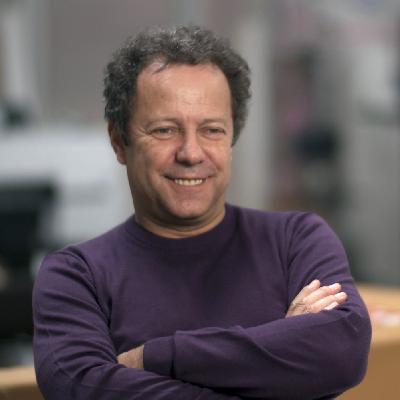
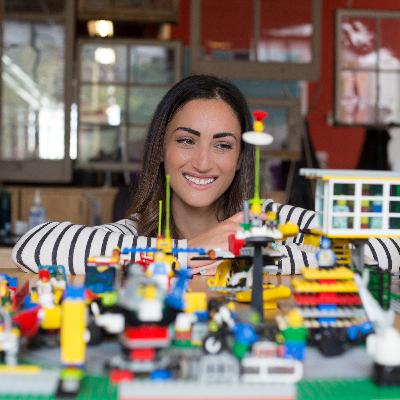


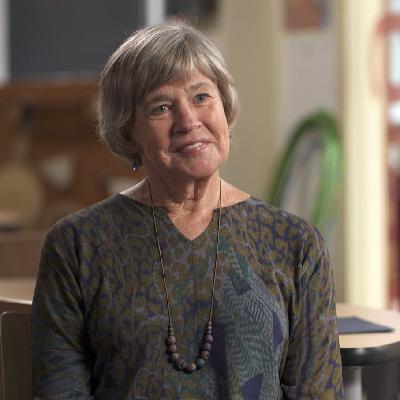







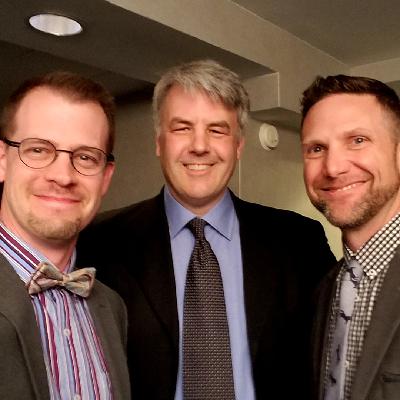

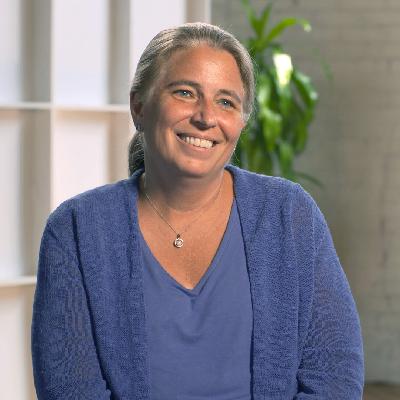







Thank you for this interview. Julie said a lot and I fully understand her to every point. At the end she indicates that it is precisely people who did not like school so much in their youth at a school who can make an important contribution. This is why I became a teacher and why I am dealing with all these changes in education. Another way of working and thinking for learning to learn. Making curious about topics and especially asking yourself why and how you are doing something encourages you to think.